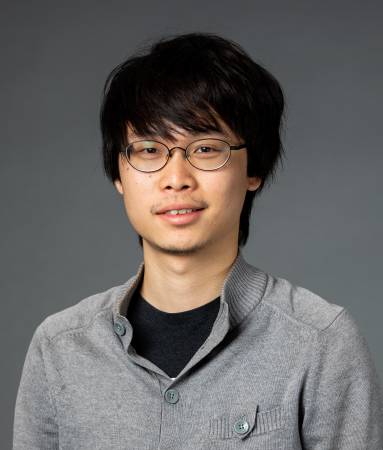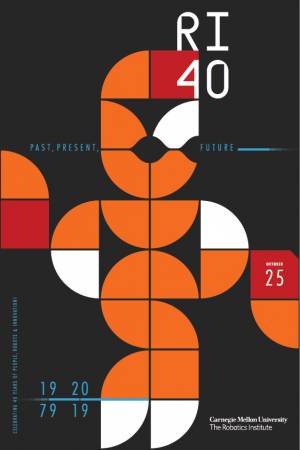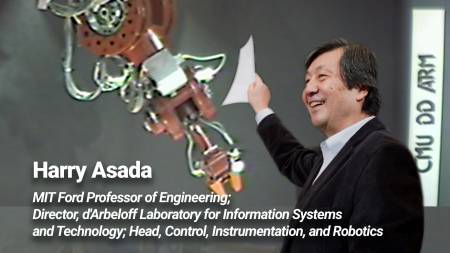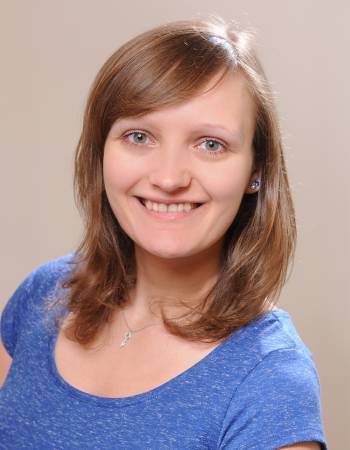Carnegie Mellon University
Open-world Object Detection and Tracking
Abstract: Computer vision today excels at recognition in narrow slices of the real world. Our systems seem to accurately detect cats, cars, or chairs, but largely ignore the vast diversity of objects in the world that are absent from our training datasets. Perception in the open world, however, requires detecting and tracking any object, regardless [...]
Carnegie Mellon University
Personalized and weakly supervised learning for Parkinson’s disease symptom detection
Abstract: Parkinson's Disease (PD) is a neurodegenerative disorder that affects approximately one million Americans. Medications exist to manage the symptoms, but doctors must periodically adjust dosage level and frequency as a patient's disease progresses. These adjustments are typically based on observations made during short clinic visits, which provide an incomplete picture of a patient's daily [...]
VR facial animation via multiview image translation
Abstract: A key promise of Virtual Reality (VR) is the possibility of remote social interaction that is more immersive than any prior telecommunication media. However, existing social VR experiences are mediated by inauthentic digital representations of the user (i.e., stylized avatars). These stylized representations have limited the adoption of social VR applications in precisely those [...]
Neural Volumes: Learning Dynamic Renderable Volumes from Images
Abstract: Modeling and rendering of dynamic scenes is challenging, as natural scenes often contain complex phenomena such as thin structures, evolving topology, translucency, scattering, occlusion, and biological motion. Mesh-based reconstruction and tracking often fail in these cases, and other approaches (e.g., light field video) typically rely on constrained viewing conditions, which limit interactivity. We [...]
RI40: Past, Present, and Future
Please plan to join us on Friday, October 25, 2019 as we celebrate 40 years of people, robots, and innovation! 40 years ago Carnegie Mellon University’s Robotics Institute opened its doors with the dream of ushering in a new age of thinking robots. During the ensuing decades, we have experienced many research successes in intelligent [...]
RI40 Seminar: From Direct-Drive to SuperLimb Bionics
In 1980-81 the first Direct-Drive robot was developed at the CMU Robotics Institute. After almost 40 years, Direct-Drive has a renewed interest in the leg robotics community. Robotic legs powered by direct-drive or low gear-reduction motors can better interact with the ground and absorb impacts. In this seminar I will talk about robot design in [...]
Tartan AUV: A Dive into Carnegie Mellon’s RoboSub Team
Abstract: Founded last year, Tartan AUV is Carnegie Mellon’s undergraduate underwater robotics team which competes annually in the RoboSub competition. RoboSub teams must design, build, and test autonomous underwater vehicles that compete each August to complete tasks related to underwater navigation, object detection and manipulation, and acoustic beacon localization. In this talk we will provide [...]
DNA and gammaPNA in programmable nanomaterials for sensing, robotics and manufacturing
Abstract: When programmable nanomaterials are used in conjunction with rapid microfabrication techniques like two photon polymerization, it becomes possible to rapidly prototype microstructures with nanoscale components. In this research presentation I introduce DNA nanotechnology using a commonly used simple nanotube motif, and I will illustrate how nucleic acid nanotubes can be used in sensing, robotics [...]
Towards Lightweight Real-time Hand Reconstruction in Challenging
Abstract: Humans naturally use their hands to interact and communicate with their surroundings. Reconstructing these complex and dexterous hand interactions enables sign-language recognition and translation, better assistive robots, and more immersive human-computer interaction (e.g. for AR and VR). To make hand reconstruction usable for the aforementioned applications and to a wide set of users, the [...]








